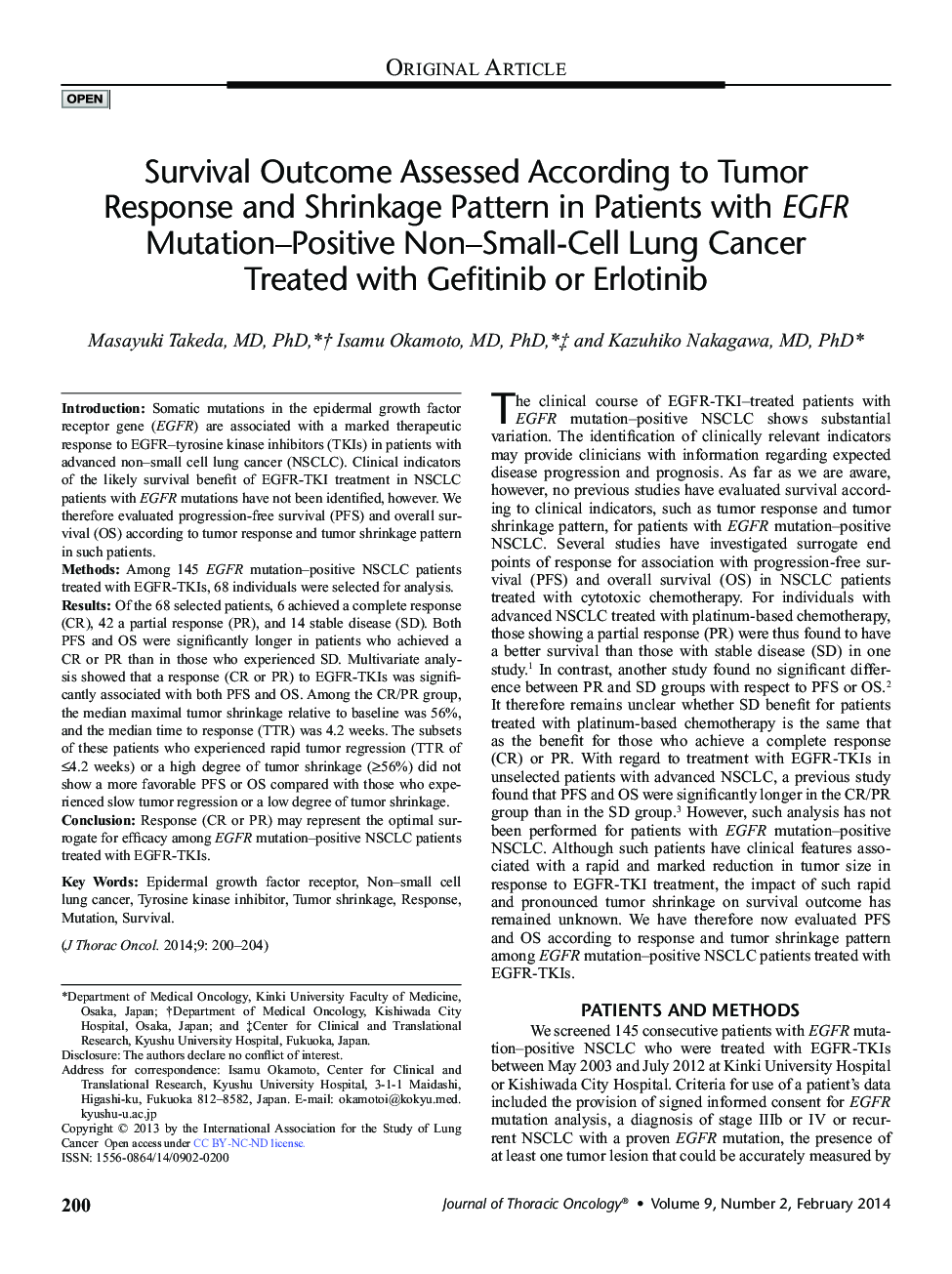| Article ID | Journal | Published Year | Pages | File Type |
|---|---|---|---|---|
| 6193498 | Journal of Thoracic Oncology | 2014 | 5 Pages |
Introduction:Somatic mutations in the epidermal growth factor receptor gene (EGFR) are associated with a marked therapeutic response to EGFR-tyrosine kinase inhibitors (TKIs) in patients with advanced non-small cell lung cancer (NSCLC). Clinical indicators of the likely survival benefit of EGFR-TKI treatment in NSCLC patients with EGFR mutations have not been identified, however. We therefore evaluated progression-free survival (PFS) and overall survival (OS) according to tumor response and tumor shrinkage pattern in such patients.Methods:Among 145 EGFR mutation-positive NSCLC patients treated with EGFR-TKIs, 68 individuals were selected for analysis.Results:Of the 68 selected patients, 6 achieved a complete response (CR), 42 a partial response (PR), and 14 stable disease (SD). Both PFS and OS were significantly longer in patients who achieved a CR or PR than in those who experienced SD. Multivariate analysis showed that a response (CR or PR) to EGFR-TKIs was significantly associated with both PFS and OS. Among the CR/PR group, the median maximal tumor shrinkage relative to baseline was 56%, and the median time to response (TTR) was 4.2 weeks. The subsets of these patients who experienced rapid tumor regression (TTR of ⩽4.2 weeks) or a high degree of tumor shrinkage (â¥56%) did not show a more favorable PFS or OS compared with those who experienced slow tumor regression or a low degree of tumor shrinkage.Conclusion:Response (CR or PR) may represent the optimal surrogate for efficacy among EGFR mutation-positive NSCLC patients treated with EGFR-TKIs.
